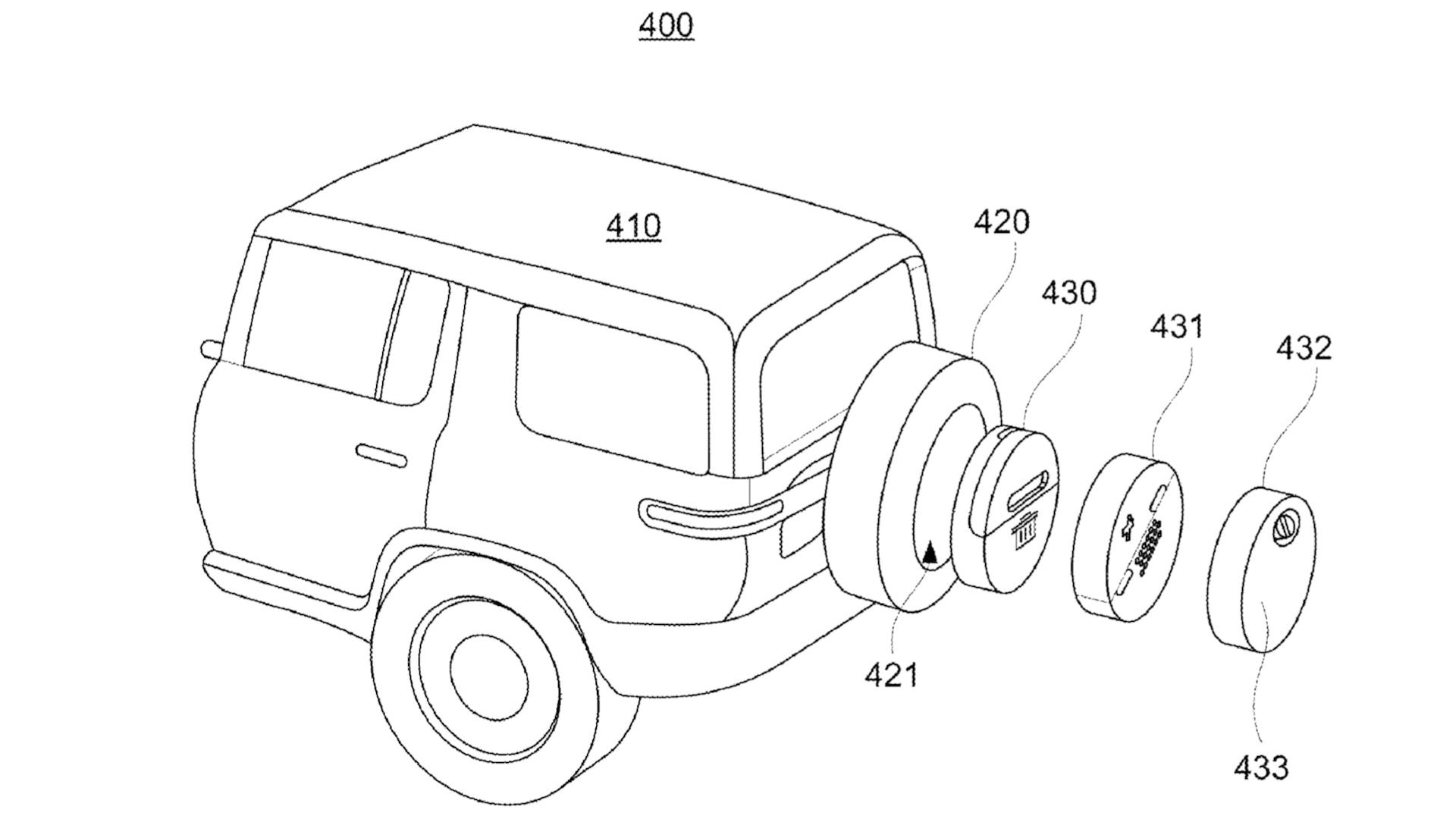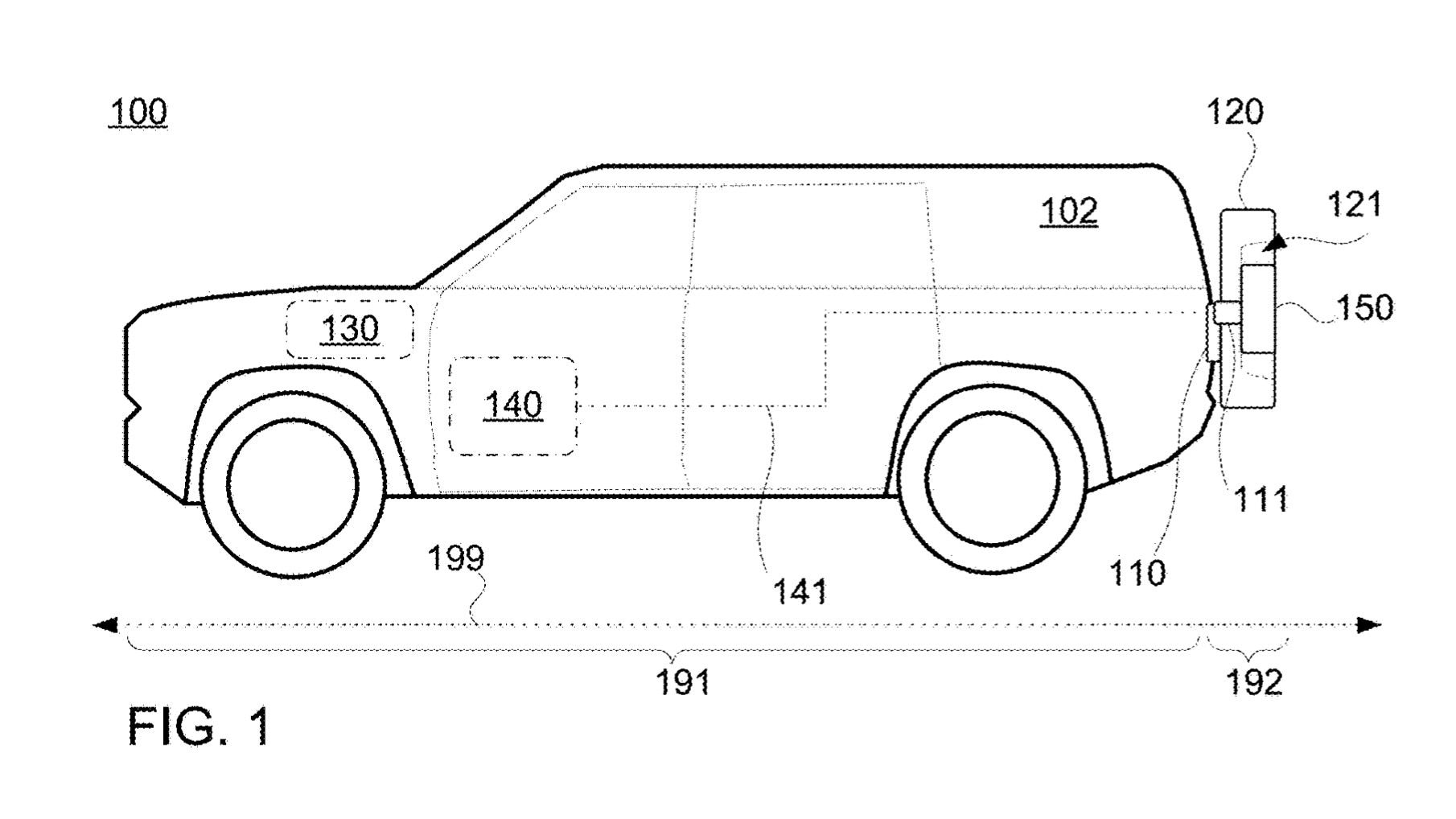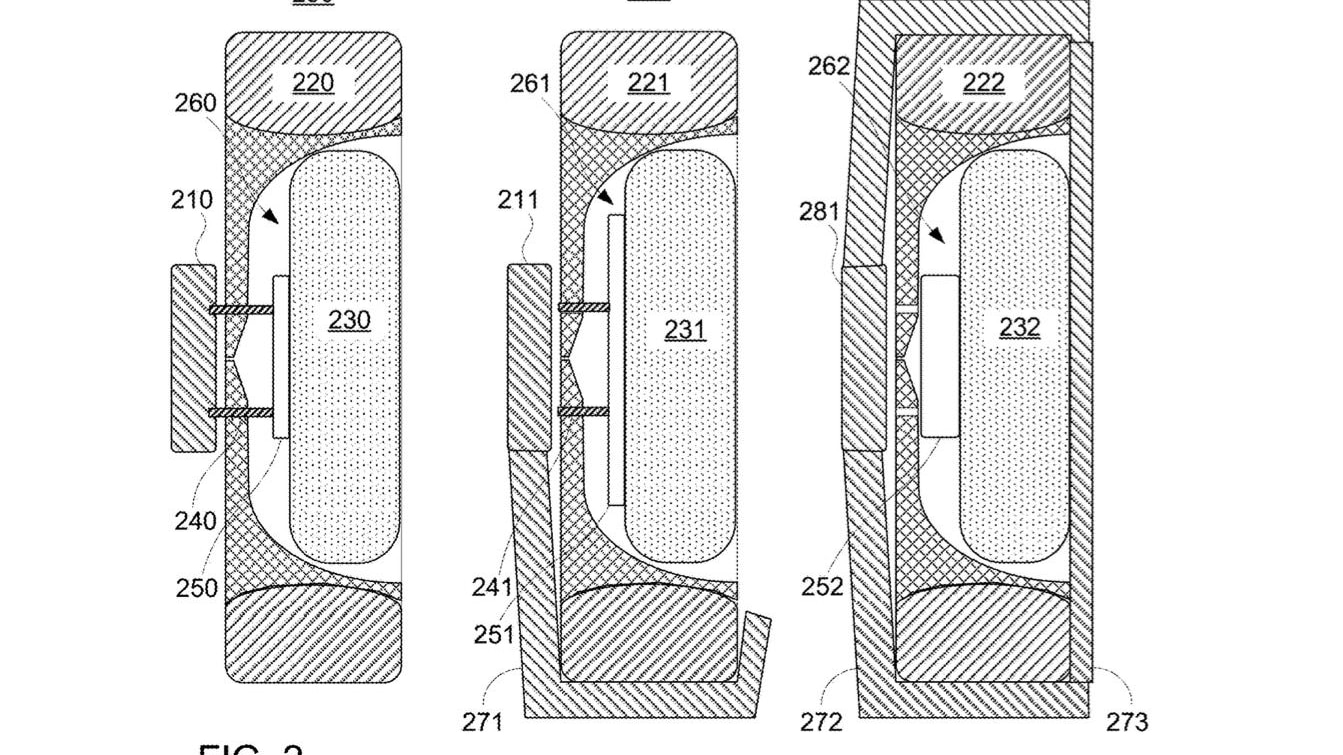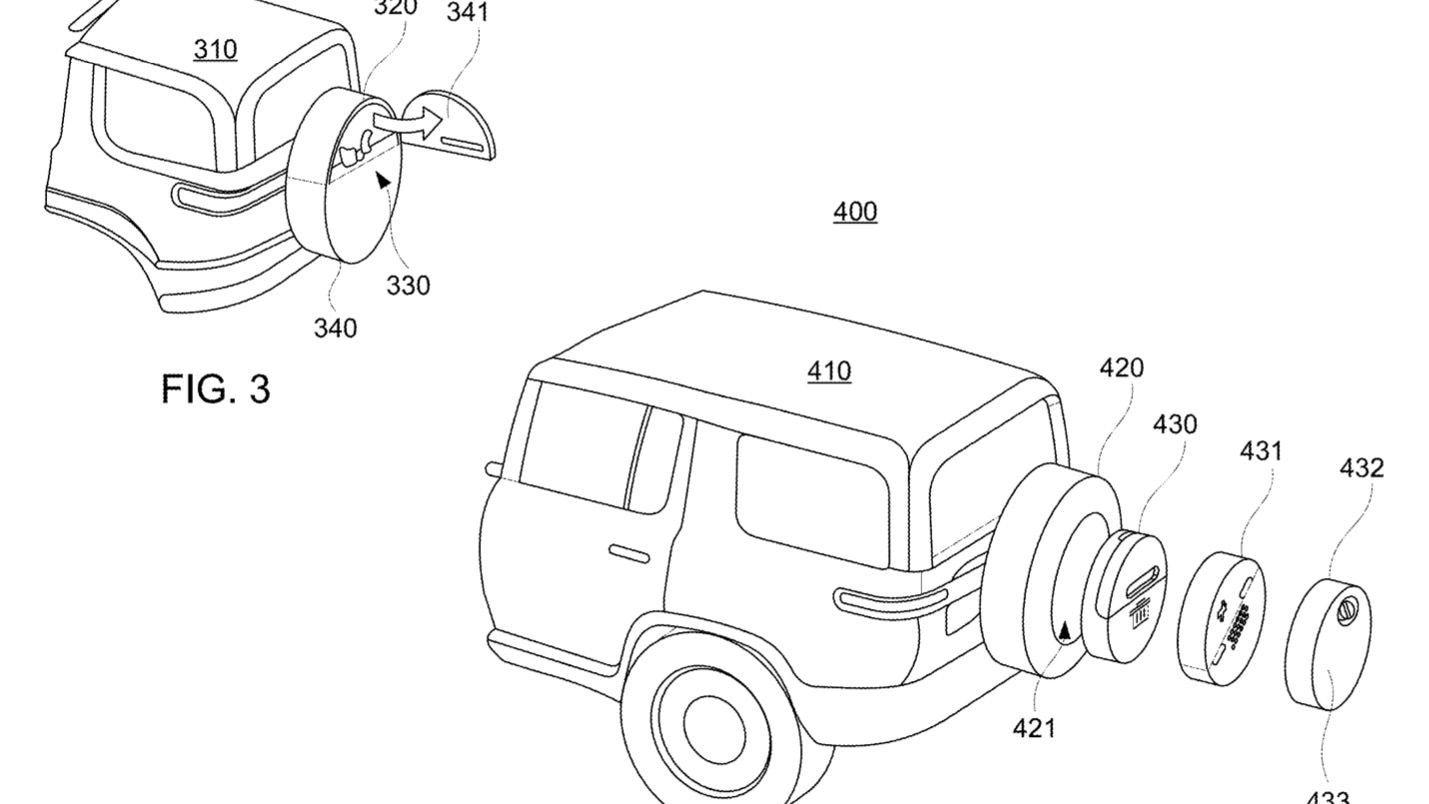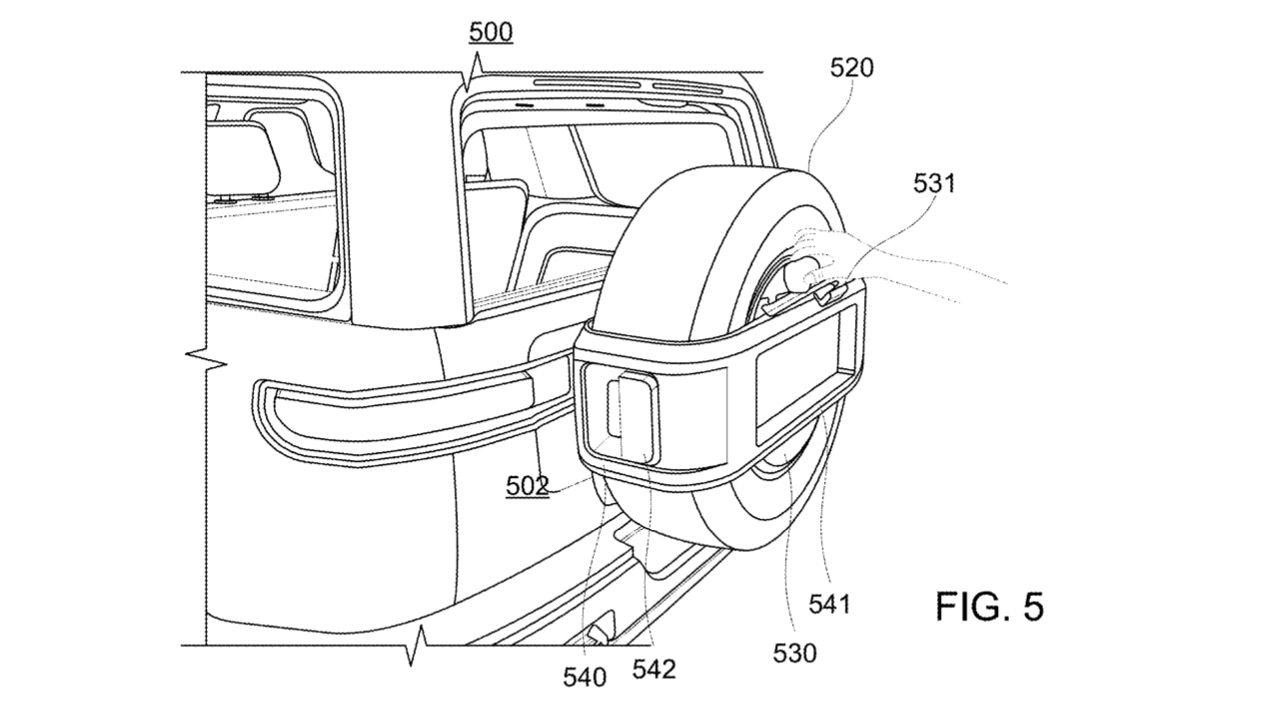The Rivian R1S electric SUV doesn't have an external spare wheel, but a recently surfaced patent filing indicates the automaker is considering one for future models, and it could also serve as a storage nook.
The patent application in question was published by the United States Patent and Trademark Office (USPTO) on Dec. 28, 2023, and originally filed by Rivian June 28, 2022. It's titled "Spare Wheel Containers for a Vehicle," and mainly deals with uses for the space inside a spare wheel mounting assembly hung off an SUV's tailgate.
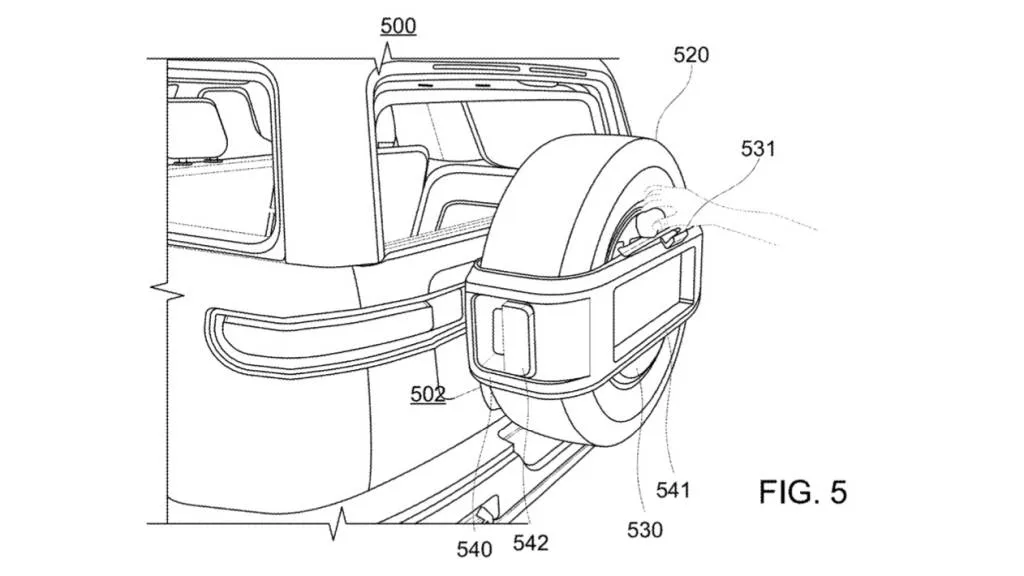
Rivian spare wheel container patent image
Mounting the wheel with its outside surface facing toward the mounting point leaves a bit of space. In the patent application, Rivian proposes filling that space with containers that could serve as storage, toolboxes, or first aid kits. Rivian suggests that they could be equipped with USB ports for charging devices, heating or cooling, as well as radio frequency identification (RFID) tags.
Other possible uses include water storage for portable camp shower systems, an air compressor for airing the spare tire up or down (an extension of the built-in air system already available in Rivian vehicles), or waste storage so owners could easily take their trash with them when leaving the wilderness. That fits with Rivian's environmental ethos, which also spurred the company to shelve its Tank Turn feature out of concern that it could be used to tear up off-road trails.
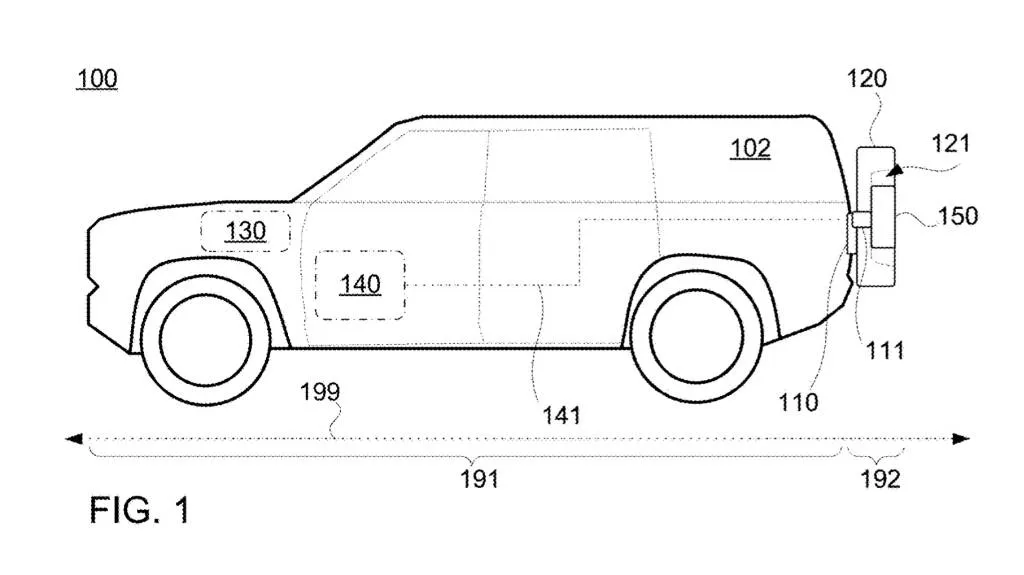
Rivian spare wheel container patent image
Spare wheel containers could also connect to a vehicle's infotainment system, allowing drivers to view water levels or air pressure from the central touchscreen, or get reminders to empty the waste container.
Not all automotive patents reach production, and while spare wheel containers are very on brand for the automaker that also brought us the R1T pickup-truck Gear Tunnel, Rivian already has a lot going on. It's slated to show the higher-volume R2 later this year. This follow-up to the R1 models aims for a $40,000 base price and is due to start production in 2026 at a new Georgia plant.
